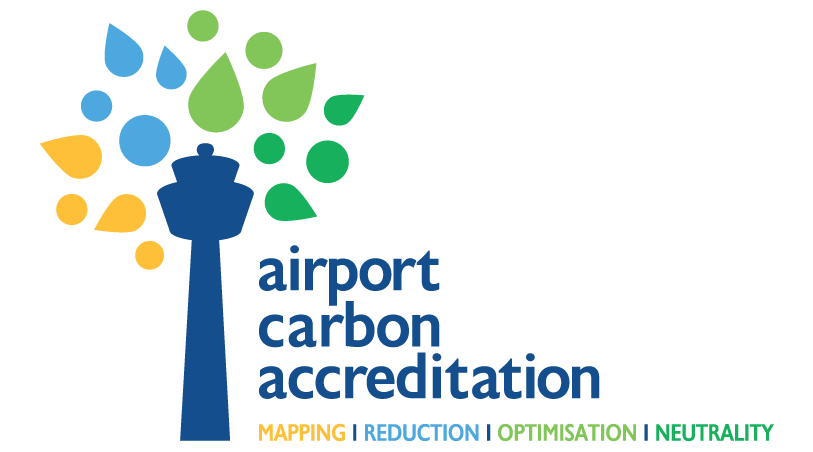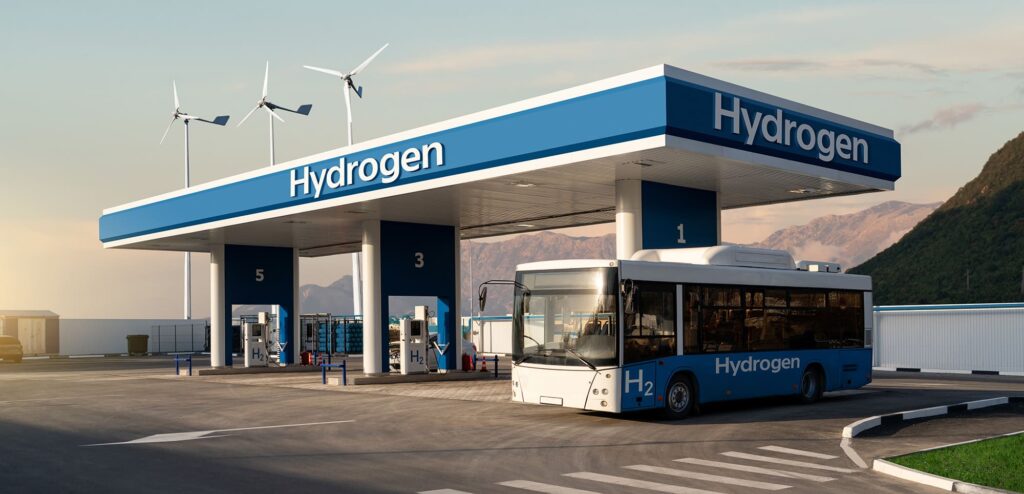ACI Airport Carbon Accreditation – The Portuguese Success Story

At the beginning of December 2023, the ACI (Airports Council International) officially inaugurated Level 5 of its Airport Carbon Accreditation programme and the news couldn’t have been better for Portuguese airports. At the time of the inauguration, only ten airports worldwide were awarded this top level of the ACI programme, three of which are located in Portugal: Beja, Madeira and Ponta Delgada.
VTM therefore takes this opportunity to recognise the excellent work carried out by the Portuguese airports, which are setting an example for the entire Aviation & Airports sector in terms of environmental sustainability good practices and, in this case, carbon emissions management. VTM works closely and on a recurring basis with two of the three distinguished airports (Madeira and Ponta Delgada) on various fronts, including within the scope of another ACI programme (ASQ Survey), and we have always been attentive to the issue of environmental sustainability, which is becoming increasingly relevant to the entire transport industry.
Hence, given this Portuguese success story, VTM has an opening here to learn from the best in the industry and is in a position to support potential clients and pass on knowledge on this subject. For a better understanding of the scope of ACI’s Airport Carbon Accreditation programme, a brief explanation is given below.
Airport Carbon Accreditation (ACA) is a programme implemented at airports around the world whose main focus is carbon emissions management. This programme was developed and launched in 2009 by ACI, more specifically by its European segment, and its main objective is to assess and recognise airports’ efforts to manage and reduce their carbon emissions, using 7 levels of certification, as shown in Figure 1 (Airport Carbon Accreditation, 2023).

Figure 1 – Airport Carbon Accreditation programme certification levels
The ACA is the only airport carbon management programme that is approved and formally supported by renowned institutions, namely the UNFCCC, UNEP, ICAO, FAA, the European Commission, among others. As mentioned above, this initiative is managed by the European segment of the ACI, which actively oversees the overall development of the programme, but also has the collaboration of the other ACI regions. For more practical aspects, such as processing airport applications or the helpdesk department, the programme is administered by WSP, an independent third party and one of the most relevant companies in the field of environmental consultancy (UN Environment Programme, 2023).
When it was launched in 2009, the programme had only 17 participating airports, but nowadays it has reached the milestone of 500 airports worldwide that are officially certified under the ACI Airport Carbon Accreditation programme (ACI, 2023). In order to be recognised under this programme, these 500 airports had to adequately meet the strict requirements set by the respective accreditation level, which are presented below.
Level 1: Mapping
The main objective of this first level is to measure the ecological footprint. Thus, in order to receive this first level of accreditation, airports must determine the sources of carbon emissions within the airport company’s operational boundaries, calculate their annual carbon emissions and finally compile a report on their carbon footprint.
(Airport Carbon Accreditation, 2023)
Level 2: Reduction
The main objective of the second level is to promote carbon emissions management that leads to a reduction in the carbon footprint. Consequently, in order to receive this second level of accreditation, airports must fulfil the criteria of the previous level and, in addition, provide evidence of effective carbon management procedures and present duly quantified emission reductions.
(Airport Carbon Accreditation, 2023)
Level 3: Optimisation
The main objective of the third level is to encourage the involvement of third parties in reducing the carbon footprint. Therefore, in order to receive this third level of accreditation, airports must meet the criteria of the previous levels and, in addition, they must broaden the scope of the carbon footprint to include third-party emissions and involve third parties, both at the airport and in its neighbourhood.
(Airport Carbon Accreditation, 2023)
Level 3+: Neutrality
The main objective of Level 3+ is to guarantee carbon neutrality for direct emissions through offsetting. To receive Level 3+ accreditation, airports must fulfil the criteria of the previous levels and, additionally, for all emissions over which they have control with high-quality carbon accreditation, airports must also offset the remaining emissions.
(Airport Carbon Accreditation, 2023)
Level 4: Transformation
The main objective of this fourth level is to transform airport operations and those of all the business partners involved in order to achieve absolute emission reductions. Therefore, in order to receive this fourth level of accreditation, airports must fulfil the criteria of the previous levels and, in addition, define a long-term carbon management strategy geared towards reducing absolute emissions (in line with the objectives stipulated in the Paris Agreement) and must demonstrate that they are actively encouraging third parties to make emission reductions.
(Airport Carbon Accreditation, 2023)
Level 4+: Transition
The main objective of Level 4+ is to balance residual emissions with suitably reliable offsets. To receive Level 4+ accreditation, airports must meet the criteria of the previous levels and, in addition, they must offset the residual carbon emissions over which they have direct control through compensatory measures that are recognised at international level.
(Airport Carbon Accreditation, 2023)
Level 5: Optimisation
The fifth and final level is the highest in the Airport Carbon Accreditation programme. In order to receive this final level of accreditation, airports must fulfil the criteria of the previous levels and, in addition, they must maintain a “Net Zero balance” under Levels 1 and 2 while at the same time maintaining the active approach to carbon emissions that is advocated under Levels 3 and 4, reinforcing the involvement of third parties and duly offsetting residual emissions.
(Airport Carbon Accreditation, 2023)
In order to join this programme and be officially accredited by the ACI in the field of carbon emissions management, the airports concerned must establish a specific timetable for meeting the objectives presented above. To this end, the airports involved must develop a Carbon Management Plan specifying the measures to be implemented, a timetable, responsibilities, among other aspects to be taken into consideration in order to meet the objectives (UN Environment Programme, 2023).
The ACA programme was designed with a view to the gradual evolution of airports through the different levels of accreditation, with the objectives to be met becoming increasingly stringent. In addition, the programme itself has evolved over time and defined increasingly demanding criteria, with some of the levels only being added in 2020 in order to ensure alignment with what is established in the Paris Agreement (UN Environment Programme, 2023).
Airport Carbon Accreditation has played a key role in ensuring that the airport sector honours its commitment to guaranteeing net zero carbon emissions (the “Net Zero Balance” concept mentioned above) by the year 2050 (ACI, 2023). Originating in the European segment of the ACI, the success of this programme is largely associated with airports in Europe, a continent that already has more than 200 accredited airports. Furthermore, Europe is the continent with the largest number of airports with the most advanced levels of accreditation (Level 3+ onwards), with 68 of the 89 airports having the accreditation levels in question (ACI Europe, 2023).
References
- ACI. New milestone for ACI’s Airport Carbon Accreditation programme. Airport World (November 2023).
- ACI Europe. Airport climate action results in Europe beat all expectations (November 2023).
- Airport Carbon Accreditation (November 2023).
- UN Environment Programme. Airport Carbon Accreditation (ACI). Climate Initiatives Platform (November 2023).
Latest news
All news
New study reveals how street network layout shapes urban mobility cultures across Europe
A collaboration including VTM’s Cristian Adorean uncovers fresh insights into the relationship between city design and travel behaviour. A new study published in Cities examines how the layout of street networks—measured as “circuity”—relates to varied mobility cultures across 41 European cities. Co-authored by VTM senior consultant Cristian Adorean, the research explores how urban environments shape […]

Key challenges to widespread adoption of clean hydrogen in urban mobility: a chicken-and-egg problem?
This is the third article of a trilogy about the application of hydrogen technologies in transport. The first one and the second one are still accessible on our website. Our previous article briefly introduces the tech under the hood of fuel cell vehicles (FCV) and their main advantages over battery electric vehicles (BEV). Depending […]
